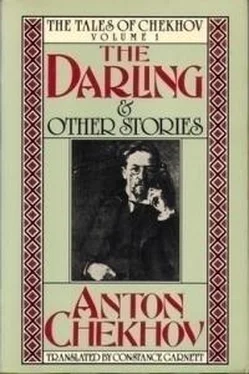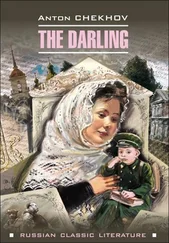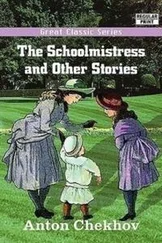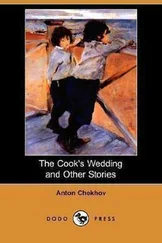Антон Чехов - The Darling
Здесь есть возможность читать онлайн «Антон Чехов - The Darling» — ознакомительный отрывок электронной книги совершенно бесплатно, а после прочтения отрывка купить полную версию. В некоторых случаях можно слушать аудио, скачать через торрент в формате fb2 и присутствует краткое содержание. Год выпуска: 2014, Издательство: epubBooks Classics, Жанр: Классическая проза, на английском языке. Описание произведения, (предисловие) а так же отзывы посетителей доступны на портале библиотеки ЛибКат.
- Название:The Darling
- Автор:
- Издательство:epubBooks Classics
- Жанр:
- Год:2014
- ISBN:нет данных
- Рейтинг книги:5 / 5. Голосов: 1
-
Избранное:Добавить в избранное
- Отзывы:
-
Ваша оценка:
- 100
- 1
- 2
- 3
- 4
- 5
The Darling: краткое содержание, описание и аннотация
Предлагаем к чтению аннотацию, описание, краткое содержание или предисловие (зависит от того, что написал сам автор книги «The Darling»). Если вы не нашли необходимую информацию о книге — напишите в комментариях, мы постараемся отыскать её.
The Darling — читать онлайн ознакомительный отрывок
Ниже представлен текст книги, разбитый по страницам. Система сохранения места последней прочитанной страницы, позволяет с удобством читать онлайн бесплатно книгу «The Darling», без необходимости каждый раз заново искать на чём Вы остановились. Поставьте закладку, и сможете в любой момент перейти на страницу, на которой закончили чтение.
Интервал:
Закладка:
"Oh, mother," said Genya, kissing her hand, "it's not good for you to sleep in the day."
They adored each other. When one went into the garden, the other would stand on the terrace, and, looking towards the trees, call "Aa—oo, Genya!" or "Mother, where are you?" They always said their prayers together, and had the same faith; and they understood each other perfectly even when they did not speak. And their attitude to people was the same. Ekaterina Pavlovna, too, grew quickly used to me and fond of me, and when I did not come for two or three days, sent to ask if I were well. She, too, gazed at my sketches with enthusiasm, and with the same openness and readiness to chatter as Misuce, she told me what had happened, and confided to me her domestic secrets.
She had a perfect reverence for her elder daughter. Lida did not care for endearments, she talked only of serious matters; she lived her life apart, and to her mother and sister was as sacred and enigmatic a person as the admiral, always sitting in his cabin, is to the sailors.
"Our Lida is a remarkable person," the mother would often say. "Isn't she?"
Now, too, while it was drizzling with rain, we talked of Lida.
"She is a remarkable girl," said her mother, and added in an undertone, like a conspirator, looking about her timidly: "You wouldn't easily find another like her; only, do you know, I am beginning to be a little uneasy. The school, the dispensary, books —all that's very good, but why go to extremes? She is three–and–twenty, you know; it's time for her to think seriously of herself. With her books and her dispensary she will find life has slipped by without having noticed it…. She must be married."
Genya, pale from reading, with her hair disarranged, raised her head and said as it were to herself, looking at her mother:
"Mother, everything is in God's hands."
And again she buried herself in her book.
Byelokurov came in his tunic and embroidered shirt. We played croquet and tennis, then when it got dark, sat a long time over supper and talked again about schools, and about Balagin, who had the whole district under his thumb. As I went away from the Voltchaninovs that evening, I carried away the impression of a long, long idle day, with a melancholy consciousness that everything ends in this world, however long it may be.
Genya saw us out to the gate, and perhaps because she had been with me all day, from morning till night, I felt dull without her, and that all that charming family were near and dear to me, and for the first time that summer I had a yearning to paint.
"Tell me, why do you lead such a dreary, colourless life?" I asked Byelokurov as I went home. "My life is dreary, difficult, and monotonous because I am an artist, a strange person. From my earliest days I've been wrung by envy, self–dissatisfaction, distrust in my work. I'm always poor, I'm a wanderer, but you—you're a healthy, normal man, a landowner, and a gentleman. Why do you live in such an uninteresting way? Why do you get so little out of life? Why haven't you, for instance, fallen in love with Lida or Genya?"
"You forget that I love another woman," answered Byelokurov.
He was referring to Liubov Ivanovna, the lady who shared the lodge with him. Every day I saw this lady, very plump, rotund, and dignified, not unlike a fat goose, walking about the garden, in the Russian national dress and beads, always carrying a parasol; and the servant was continually calling her in to dinner or to tea. Three years before she had taken one of the lodges for a summer holiday, and had settled down at Byelokurov's apparently forever. She was ten years older than he was, and kept a sharp hand over him, so much so that he had to ask her permission when he went out of the house. She often sobbed in a deep masculine note, and then I used to send word to her that if she did not leave off, I should give up my rooms there; and she left off.
When we got home Byelokurov sat down on the sofa and frowned thoughtfully, and I began walking up and down the room, conscious of a soft emotion as though I were in love. I wanted to talk about the Voltchaninovs.
"Lida could only fall in love with a member of the Zemstvo, as devoted to schools and hospitals as she is," I said. "Oh, for the sake of a girl like that one might not only go into the Zemstvo, but even wear out iron shoes, like the girl in the fairy tale. And Misuce? What a sweet creature she is, that Misuce!"
Byelokurov, drawling out "Er—er," began a long–winded disquisition on the malady of the age—pessimism. He talked confidently, in a tone that suggested that I was opposing him. Hundreds of miles of desolate, monotonous, burnt–up steppe cannot induce such deep depression as one man when he sits and talks, and one does not know when he will go.
"It's not a question of pessimism or optimism," I said irritably; "its simply that ninety–nine people out of a hundred have no sense."
Byelokurov took this as aimed at himself, was offended, and went away.
III
"The prince is staying at Malozyomovo, and he asks to be remembered to you," said Lida to her mother. She had just come in, and was taking off her gloves. "He gave me a great deal of interesting news …. He promised to raise the question of a medical relief centre at Malozyomovo again at the provincial assembly, but he says there is very little hope of it." And turning to me, she said: "Excuse me, I always forget that this cannot be interesting to you."
I felt irritated.
"Why not interesting to me?" I said, shrugging my shoulders. "You do not care to know my opinion, but I assure you the question has great interest for me."
"Yes?"
"Yes. In my opinion a medical relief centre at Malozyomovo is quite unnecessary."
My irritation infected her; she looked at me, screwing up her eyes, and asked:
"What is necessary? Landscapes?"
"Landscapes are not, either. Nothing is."
She finished taking off her gloves, and opened the newspaper, which had just been brought from the post. A minute later she said quietly, evidently restraining herself:
"Last week Anna died in childbirth, and if there had been a medical relief centre near, she would have lived. And I think even landscape–painters ought to have some opinions on the subject."
"I have a very definite opinion on that subject, I assure you," I answered; and she screened herself with the newspaper, as though unwilling to listen to me. "To my mind, all these schools, dispensaries, libraries, medical relief centres, under present conditions, only serve to aggravate the bondage of the people. The peasants are fettered by a great chain, and you do not break the chain, but only add fresh links to it—that's my view of it."
She raised her eyes to me and smiled ironically, and I went on trying to formulate my leading idea.
"What matters is not that Anna died in childbirth, but that all these Annas, Mavras, Pelageas, toil from early morning till dark, fall ill from working beyond their strength, all their lives tremble for their sick and hungry children, all their lives are being doctored, and in dread of death and disease, fade and grow old early, and die in filth and stench. Their children begin the same story over again as soon as they grow up, and so it goes on for hundreds of years and milliards of men live worse than beasts— in continual terror, for a mere crust of bread. The whole horror of their position lies in their never having time to think of their souls, of their image and semblance. Cold, hunger, animal terror, a burden of toil, like avalanches of snow, block for them every way to spiritual activity—that is, to what distinguishes man from the brutes and what is the only thing which makes life worth living. You go to their help with hospitals and schools, but you don't free them from their fetters by that; on the contrary, you bind them in closer bonds, as, by introducing new prejudices, you increase the number of their wants, to say nothing of the fact that they've got to pay the Zemstvo for drugs and books, and so toil harder than ever."
Читать дальшеИнтервал:
Закладка:
Похожие книги на «The Darling»
Представляем Вашему вниманию похожие книги на «The Darling» списком для выбора. Мы отобрали схожую по названию и смыслу литературу в надежде предоставить читателям больше вариантов отыскать новые, интересные, ещё непрочитанные произведения.
Обсуждение, отзывы о книге «The Darling» и просто собственные мнения читателей. Оставьте ваши комментарии, напишите, что Вы думаете о произведении, его смысле или главных героях. Укажите что конкретно понравилось, а что нет, и почему Вы так считаете.












